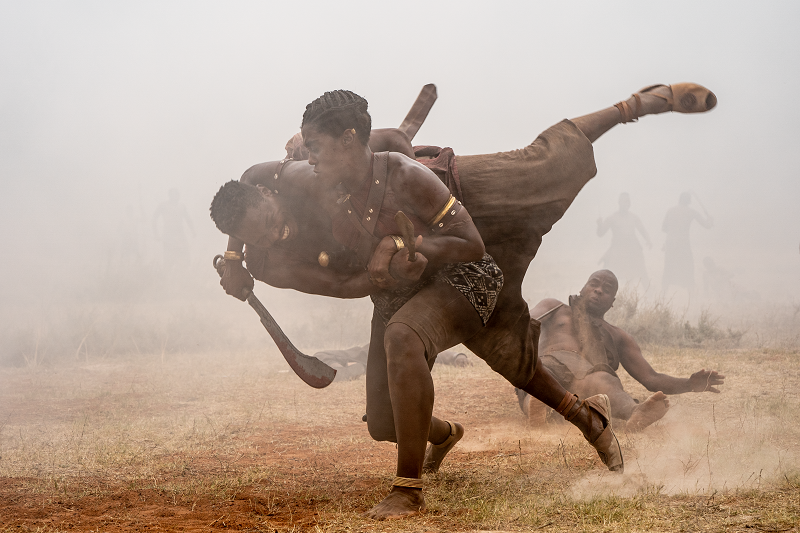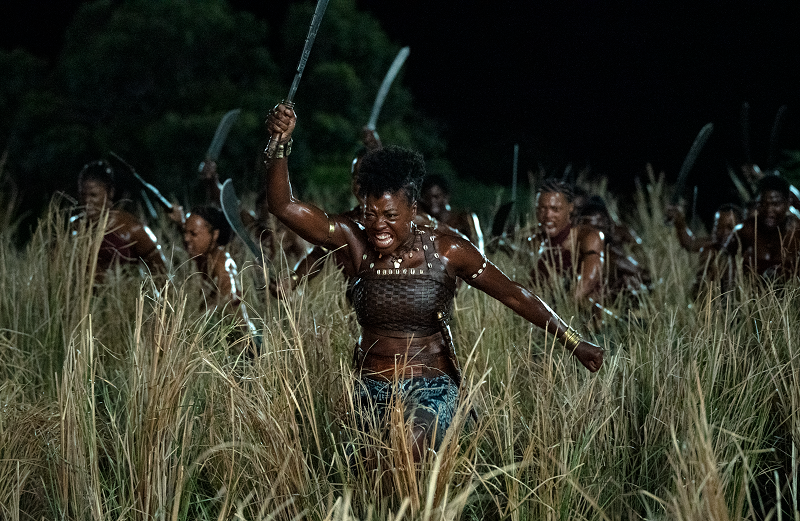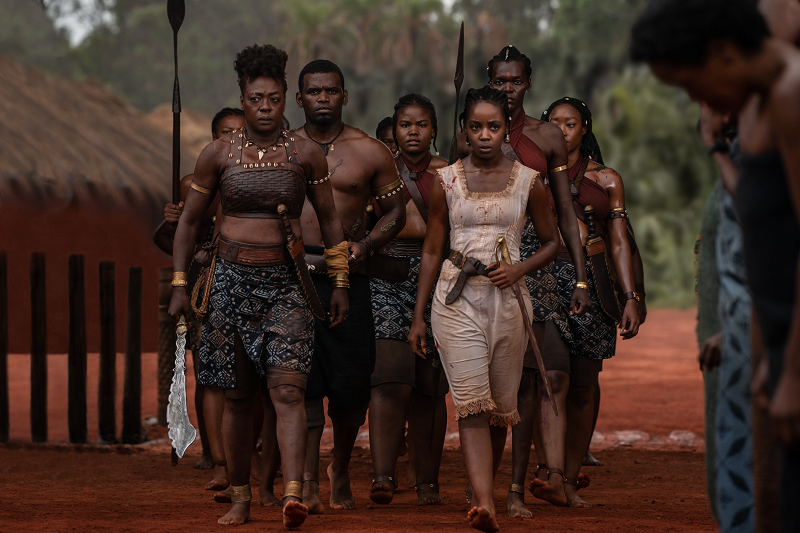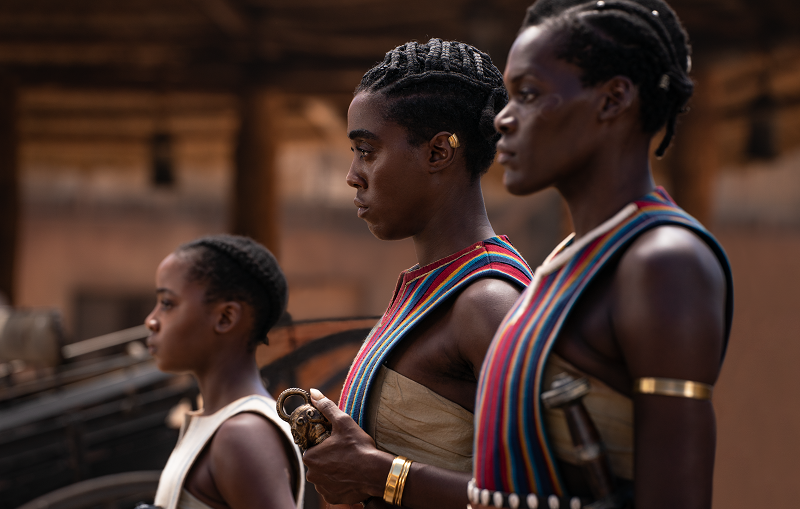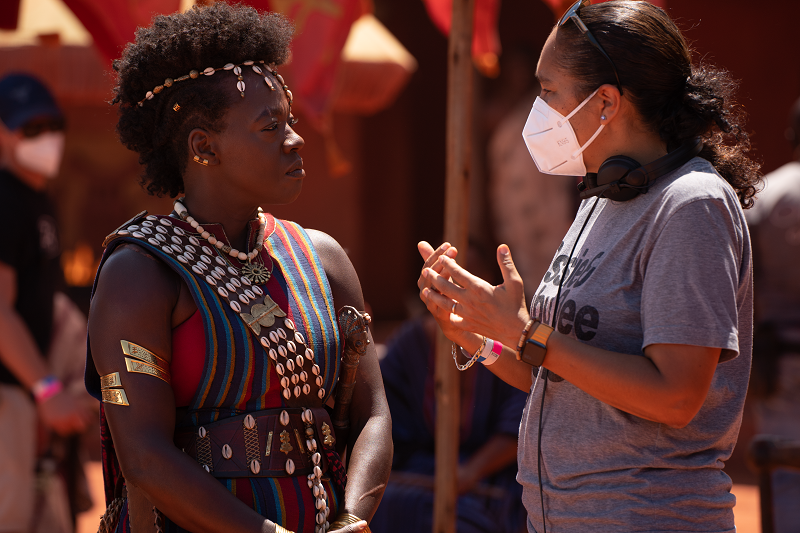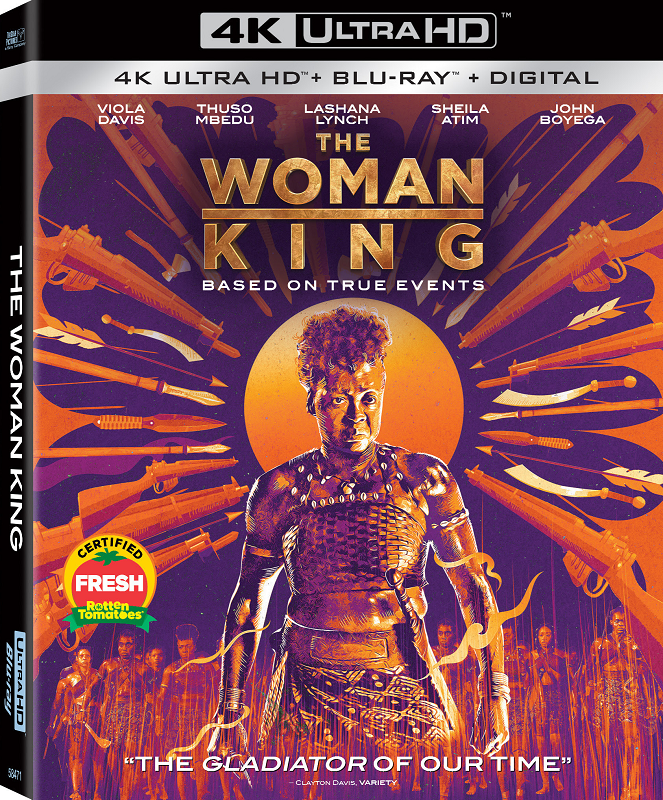|
Originally published on Elements of Madness. The title of Gina Prince-Bythewood’s latest film alone is enough to inspire strength, courage, and bravery. The movie itself, The Woman King, lives up to the inspirational connotations of its name. Set in West Africa in 1823, the story focuses on the Agojie, an all-female group of tough and fearless warriors who are dedicated to protecting the kingdom of Dahomey. Filled with beautiful costumes, expansive scenery shot on-location in Africa, powerful dance and fight choreography, and a deep-rooted sense of genuine sisterhood, The Woman King is a joy to watch. The outstanding cast brings lots of passion to the screen, but at times their efforts are undermined by a weak script. The narrative hiccups and uneven tone, however, aren’t enough to rob The Woman King of its power. The fearless Agojie defend their people with unmatched skill and bravery. They’re led by a stern and disciplined leader, Nanisca (Viola Davis). A new batch of recruits has just joined the Agojie for training, one of whom catches Nanisca’s attention with her independent and headstrong personality. The trainee in question, Nawi (Thuso Mbedu), joins the group of warriors after her father gives her as a gift to King Ghezo (John Boyega). Nawi finds favor with one of the experienced warriors, Izogie (Lashana Lynch), who oversees the training. However, Nawi remains at odds with Nanisca and nearly gets herself thrown out on several occasions. Nawi, Nanisca, and the rest of the warriors must reconcile their differences and work together as a unit in order to keep Dahomey safe and prosperous. Although it’s based on true events, The Woman King does not come across as educational or preachy. The story takes place in the context of the slave trade, but co-wrtiters Dana Stevens and Maria Bello don’t make the slave trade the central focus of the story. They integrate the realities of the trade into the script without cramming in self-congratulatory messages about the evils of slavery. They also teach the audience about the Dahomey people and the Agojie through the eyes of Nawi, a young woman who is just learning about the way of the warriors herself. The newcomer’s perspective gives the story a hopeful, exciting, and adventurous tone rather than a condescending and educational one. The writers also fill the script with plenty of humor, mostly in the form of sassy and quick-witted comments from Izogie. Although some of the one-liners feel out of place, like cringey attempts to make a historical story relevant and relatable, the humor makes the movie more enjoyable overall. Oddly enough, the cheap humor and drama give the cast the chance to show off their acting chops. Their strengths shine the brightest when the story and dialogue are lacking. In those moments, they get to prove that they can add depth and believability to a weak script. Lashana Lynch, who plays the quick-witted and feisty Izogie, is clearly having a ball with the banter between her character and Nawi. She makes just about every joke work with her natural delivery and ease in front of the camera. Thuso Mbedu and Viola Davis both excel in the dramatic parts of the story, holding our attention with sincere performances. Even when the plot takes awkward and questionable turns, Davis and Mbedu keep the story grounded and steady. They remain 100% in character and add an emotional level to the story that wasn’t written into the script. Although the title of the movie references one specific character, The Woman King isn’t about just one woman. The three characters listed above split the spotlight in The Woman King, and they each do their roles justice. However, while each character’s story is equally interesting, The Woman King didn’t need to be over two hours long. The script could use a hefty tightening up, especially since a lot of the initial conflict between Nawi and Nanisca is repeated in multiple scenes. Nawi will do something out of line, Nanisca will rebuke her, Nawi will lash out, and Nanisca will warn her that she’s not going to last long in the Agojie. This happens a number of times before the conflict between the two characters starts to move forward. The Woman King seeks to entertain and inspire, and it meets expectations with the satisfactory technical elements of a B-lever blockbuster. Aside from the performances, the movie’s strongest assets are the fight and dance choreography, the score composed by Terence Blanchard, and the cinematography by Polly Morgan. Fans can get a glimpse of all the heart, research, and dedication that went into the making of The Woman King by checking out the special features on the DVD, Blu-ray or 4K UHD disc. The DVD includes two featurettes, Thuso Mbedu’s audition footage, and a commentary with director Gina Prince-Bythewood and editor Terilyn A. Shropshire. The 4K UHD and Blu-ray versions include all the bonus materials on the DVD as well as two additional featurettes. While the two 10-minute featurettes on the DVD are insightful, they barely scratch the surface of the story behind the film. They make for a nice follow-up to the movie, but they don’t offer the deep-dive that some might want. The commentary offers a bit more insight, and Prince-Bythewood and Shropshire maintain an engaging conversation throughout. While the disc does not include deleted scenes, the filmmakers do discuss some of the deleted scenes during their commentary. If you have any interest in the making of The Woman King and the history that inspired it, then the 4K UHD and Blu-ray versions are the better option. They offer roughly 20 additional minutes of behind-the-scenes footage and interviews, including a segment that focuses on Viola Davis and what The Woman King means to her. Her unique perspective sheds a different light on the movie that will help audiences appreciate it more.
0 Comments
Leave a Reply. |
"Our embodied spectator, possibly perverse in her fantasies and diverse in her experience, possesses agency...finally, she must now be held accountable for it." Categories
All
|

